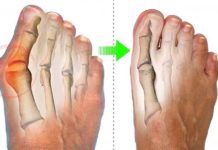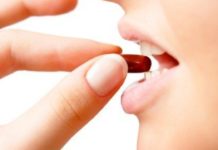Having a glass of wine or any other alcoholic beverage when out with colleagues, friends or family is something quite “common and accepted”, despite not being good for your health. One of the problems that can arise is that you drink too much and want to do an activity that requires your complete mental agility, in a short time.
If that happens to you, you are probably wondering how to remove alcohol from the body quickly? First of all, you should consider that There is no magic formula that will bring your blood alcohol level to zero in one fell swoop.
That being said, There are some strategies — that if you adopt them — can help you reduce the effects of alcohol in your body. In the following lines we will go into more depth on this topic, as well as the ways that alcohol leaves the body and other information that you should know.
Can alcohol be eliminated from the body quickly?
The answer to this question is that there is no quick way to detoxify the body of alcohol, because Most of the work is done by the liver and it acts at its own pacethat is, there is no way to speed up this process.
Those tips that abound on the networks to “quickly lower” the alcohol level such as chewing coffee beans, giving yourself a cold shower or doing exercises are not effective, as they do not have any scientific support. As the Spanish Ministry of Health points out, The only way to avoid having alcohol in your blood is to not drink it.
Once alcohol enters the body, all that remains is to wait for it to be metabolized. But there are some ways, as a preventive measure, to reduce the effects of alcohol on the body and make the liver’s job a little easier. Below, we share them with you:
Eat before you drink
If you’re going to have a few drinks, Don’t do it on an empty stomach The journey of alcohol begins in the mouth, passes through the esophagus to the stomach. From there it goes to the small intestine, where it is mostly absorbed, and reaches the bloodstream.
If you have food in your stomach, this will make the passage to the small intestine slower. which translates into a lower blood alcohol level. Note that to achieve this effect, it also works to eat food while drinking.
Stay hydrated
Water is vital for the body and when you are consuming alcohol you should not do without it. If you alternate a glass of water with your drink, it will make you drink less. And thus there will be a lower concentration of alcohol in your blood.
Likewise, drinking water will help you combat the dehydration that occurs while drinking alcohol. And as the Mayo Clinic notes, this can contribute to reduce hangover symptoms.
You could also take isotonic drinks to hydrate you and replenish electrolytes lost during alcohol consumption.
Drink slowly
If you are one of those people who, upon arriving at a party, downs a drink in a couple of gulps, we will tell you that this only gives the liver more work. As the Spanish Ministry of Health points out in the aforementioned article, The faster you drink, the faster the alcohol absorption by the body. So the ideal is to take it easy and enjoy the conversations and the moment, more than the drink itself.
Choose your drink wisely
Alcoholic beverages can be classified into two types. On the one hand, there are fermented ones that, as their name indicates, come from the fermentation of fruits and cereals, as is the case with wine and beer.
On the other hand, there are distilled spirits, such as vodka or whiskey, which use distillation to remove the water in them. The latter have a higher alcohol content than the former and are therefore drinks that are more aggressive for the stomach.
That being the case, The ideal would be to consume fermented drinks, Because they have a lower alcohol content, they are absorbed more slowly by the body.
Avoid combining
There are some cocktails that mix alcoholic beverages with carbonated water or soda. And these are precisely the ones you should avoid if you want to slow down the rate at which your body absorbs alcohol.
This is because these drinks cause the pylorus (the section that connects the stomach to the small intestine), opens more easily resulting in the alcohol being absorbed more quickly.
This also applies to hot alcoholic drinks, such as the Spanish carajillo or the I’ll take it from you Greek.
How long does it take for alcohol to leave the body?
Every time you drink a glass, the alcohol travels through different organs and systems in your body. It is detected in the blood five minutes after ingestion and reaches its maximum level between 30 and 90 minutes later, and then decreases as it is metabolized in the body.
The ways in which it is eliminated are through urine, sweat, breathing and by metabolization. As we told you, the 90% of the alcohol we consume is metabolized by the liver. Which leaves the other elimination routes with a very low percentage overall (10%).
As you may have noticed, the liver is the one that does most of the work. And if you’re wondering how long does it take for alcohol to leave the body?, it all depends on how long it takes the liver to metabolize it, which on average it is 0.12 g/l of alcohol in the blood per hour.
And what does this equate to? It is best to observe it with an example. According to the Ministry of Health of Spaina beer can take from one hour and 45 minutes to two hours and 50 minutes to be metabolized by the liver, depending on whether you are a man or a woman.
For their part, the American Addiction Centers (AAC) They point out that The average time that alcohol remains (and is detected) in the blood is usually 12 hours. So if you plan on getting tested anytime soon, reconsider drinking that beer or glass of red wine.
How long does alcohol stay in urine and breath?
Blood is not the only way alcohol is detected in the body. The AAC highlights the following residence and detection times of alcohol in other parts of the body:
- Urine: between 12 and 24 hours.
- Breath: between 12 and 24 hours.
- Hair: up to 90 days.
The reason it lasts so long in the hair is due to metabolites. These are substances that are produced when consuming alcohol and that are trapped in the hair. hair fibers as it grows.
You should know that for each route, there is a detection method. In the case of urine, blood and hair, it is done through laboratory analysis. While in the case of breath, it is done through a breathalyzer, an instrument that measures the concentration of alcohol in exhaled gases.
This is the way the police use their measurements. For example, in Spain the legal limit of alcohol —for general drivers— in expired air is 0.25 mg/l, while for new and professional drivers it is 0.15 mg/l. The idea of these limits is avoid traffic accidents that endanger the population and drivers.
What influences the elimination of alcohol from the body?
Have you ever gone to a party with a friend, you both drink the same beverage, but one of you seems more “tipsy” or influenced by alcohol than the other? Well, there is an explanation for this.
While it is true that there is no way to eliminate alcohol from the body quickly, you should know that there are certain factors that influence blood alcohol concentrations to be higher. Some of them are:
- Age: minors, as well as the elderly, it takes longer to eliminate alcohol from their body.
- Weight: The blood alcohol concentration in an obese person is usually lower than in a thin person, because the former has greater body mass and water.
- Alcohol content and quantity: The higher the alcohol content, the longer it will take to eliminate. The same goes for quantity: it takes longer to eliminate a litre of beer than a can.
- Sex: Women take longer to eliminate alcohol from their system than men. This is because they generally have less water and fat in their bodies.
- Medications: take certain medications —such as anti-anxiety medications— or drugs combined with alcohol, can create an interaction that would increase your blood alcohol levels.
Don’t forget to take in moderation to avoid accidents
Perhaps this is a phrase you’ve heard countless times before, but it’s worth remembering. It’s no secret that alcohol makes your reflexes and reactions slower than normal. And if, for example, you drive, you need to be alert, because if you’re not, you could have an accident, putting your life and the lives of those around you at risk.
Whether it’s a couple of drinks or a bottle of liquor, alcohol is not eliminated quickly from the body. So, as a safety precaution, avoid driving. Also, don’t forget to drink in moderation, as Alcohol has negative effects in health, which – as you may have noticed – are better avoided.













